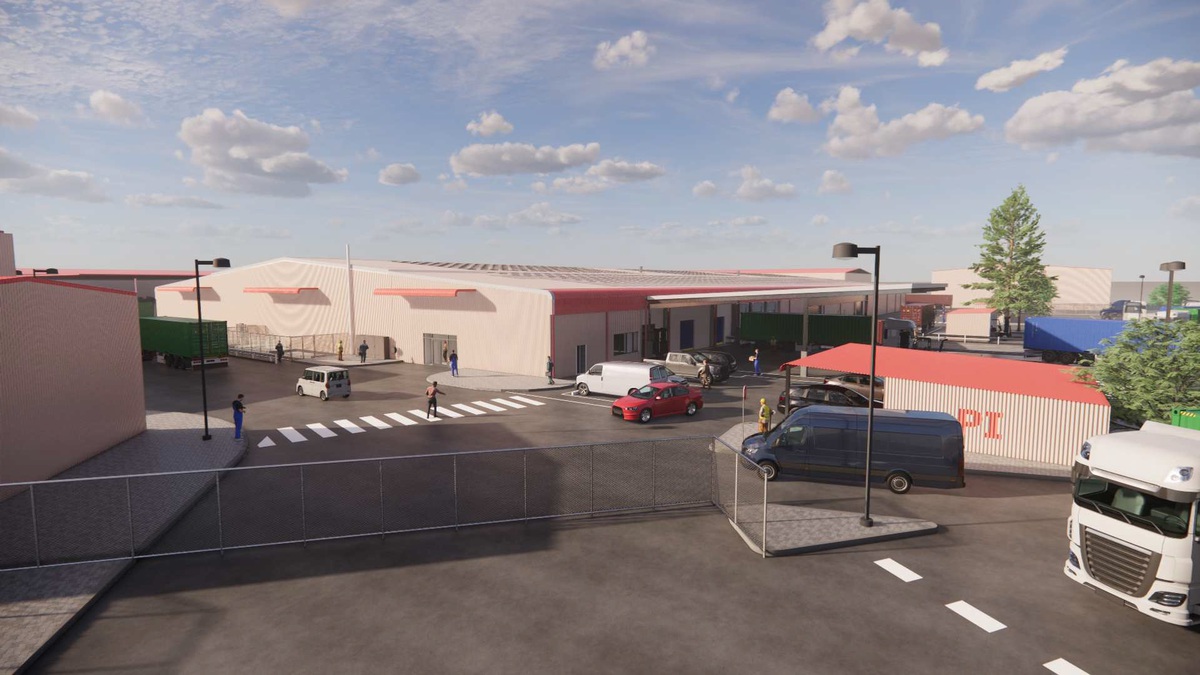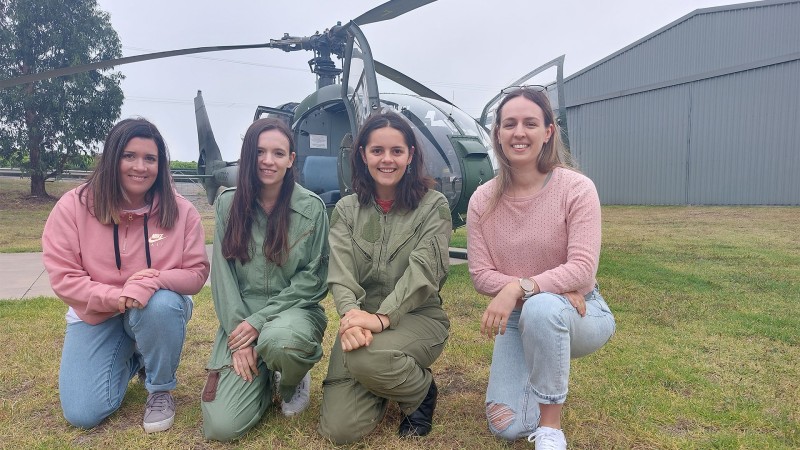
Market size, maturity and available capital are stand out reasons why the US is on the hit list for many South Australian companies looking to scale in 2023 and beyond.
However, barriers to entry are aplenty and even the most impressive flying starts don’t always yield Disney-style happily ever afters.
We caught up with two startups with fascinating insights into cultural nuances, alongside the dos and don’ts of leveling up your company stateside.
 MyVenue, the 2022 Australian Emerging Exporter of the Year, is a solid example of targeting the US market with enviable success.
MyVenue, the 2022 Australian Emerging Exporter of the Year, is a solid example of targeting the US market with enviable success.
The company’s Point of Sale technology is purpose-built for large venues, like stadiums, that sell food and drinks to big crowds. The solution offers fast transaction times, scalable terminal deployment, innovative mobile ordering, comprehensive back office, and browser-accessible performance dashboards for real-time reporting.
The startup has generated more than 85 per cent of its revenue in the US in the past 12 months; unsurprising, given the country has more stadiums than any other country on Earth. Most large US cities have major league, minor league and college venues for football, basketball, hockey and baseball.
In February 2023, MyVenue’s technology was used at Super Bowl LVII, where it processed 90,000 transactions across concessions, premium bars, mobile ordering and corporate boxes. Meanwhile, over three days at the inaugural Miami Grand Prix in 2022, the company amassed 223,000 transactions and US$7 million in gross sales.
Despite the impressive resumé of achievements, MyVenue’s journey hasn’t been without its unique challenges. Chief executive officer, Tim Stollznow, pictured left, says that Americans are very proactive in choosing and changing technology providers and are prodigious networkers.
“If your team or product doesn’t perform as promised, North American venue operators are willing to quickly replace the technology, regardless of the cost. This places a greater pressure on executing,” Stollznow says.
For global entertainment events, such as the Super Bowl, the stakes don’t get much higher.
“We regularly fly Australian-based experts to the US to build relationships and deploy products, as we did for February’s football game at State Farm Stadium. This is costly, but it’s worth the investment,” Stollznow says.
“We also rely on third-party POS terminals and EFTPOS devices to operate a full turnkey POS solution. Unfortunately, post-pandemic microchip and superconductor shortages created supply chain challenges we’ve had to overcome.”
That being said, within three short years MyVenue has grown from zero to 33 employees and continues to expand rapidly its customer base in the US.
Tim’s tips
- Expos. Select at least one tradeshow to attend every year of three years straight (minimum)
- Be relentless. Live and breathe the market. Use the local language, especially industry terminology
- Get local. Have an advocate on the ground at all introductory meetings – this can be an employee or an external consultant
- Build a local team. An on-ground presence (same time zone and accent) makes doing business easier and speeds up enquiry responses
- Get off Zoom. Build rapport with customers and overcome any perception of being a foreign company by meeting face-to-fac
 Another startup, based in Stone & Chalk’s Startup Hub is TCPinpoint, who won its first US customer in late 2022. The company’s cloud-based workflow platform helps property managers in the retail sector create amazing spaces by managing the multitude of tasks, communications, documents and reporting required in the delivery and fit-out of retail shops.
Another startup, based in Stone & Chalk’s Startup Hub is TCPinpoint, who won its first US customer in late 2022. The company’s cloud-based workflow platform helps property managers in the retail sector create amazing spaces by managing the multitude of tasks, communications, documents and reporting required in the delivery and fit-out of retail shops.
Scale, again, is an important factor for the company. The Australian retail market exhibits very different characteristics to other retail markets around the world, in large part due to the high barriers to entry, but also comparative low supply versus the major markets of North America.
Australia has retail supply of approximately 1.06sqm per person, compared to the US which has more than double this.
Post COVID, TCPinpoint signed its first US customer, Prism Places, which has a US$3 billion portfolio of assets across California, Colorado and Texas. Implementing TCPinpoint’s software solutions across the portfolio has meant that the company has ditched spreadsheets, and now has visibility across their tenancy delivery to ensure they can provide best-in-class customer experience to their tenants and key stakeholders.
Rachel Kidwell, TCPinpoint’s chief executive officer, pictured above right, says, “from our experience of the US, the speed of decision making and engagement through implementation are two of the biggest cultural differences.”
“We were able to implement our software with Prism Places across a six-week timeframe, extended only due to the festive holiday period.
“Building technology from an idea sketched out on an A3 piece of paper, based on lived experience, has been one of the most challenging and rewarding experiences of my life.
“In other territories, there may be six to eight coffee meetings before leads are interested in a proposal. In the US, on average, we can receive incoming web-based enquiries, demo the software and provide a proposal in a 48-hour time frame; with a yes or no answer received in seven to 14 days.
“The speed of doing business is very different.”
Prior to entering the US market, Hank Delen, TradeStart Adviser at the Department for Trade and Investment says it’s worth conducting considerable market research.
“It’s essential to understand the value drivers, competitive dynamic, and your business value proposition for the market,” he says. “You can then apply the learnings from the research into a written strategy, that will keep your team aligned, while importantly identifying key success milestones and opportunities to manage the risks.”
Austrade’s TradeStart network is a good place to start when looking for new export markets. Delivered in partnership with state, territory and local governments, industry associations and chambers of commerce, the network assists small and medium sized exporters to achieve long term success internationally. It offers exporters the combined resources of Austrade and each partner organisation, providing local assistance and a direct link to Austrade’s services and overseas network.
Find out more at www.austrade.gov.au or www.dti.sa.gov.au.
This story originally appeared in Lot Fourteen's Boundless magazine and is reproduced here with permission.






